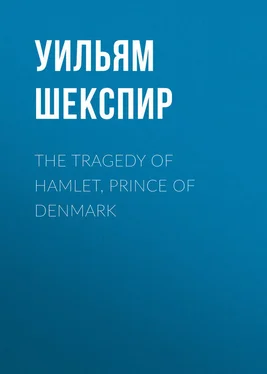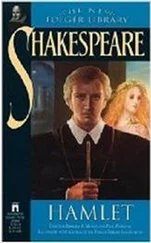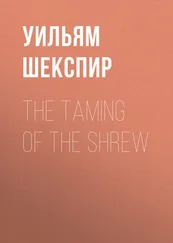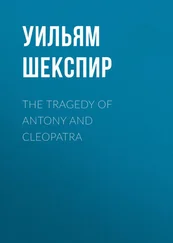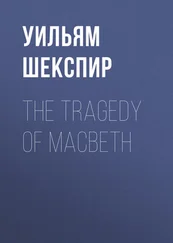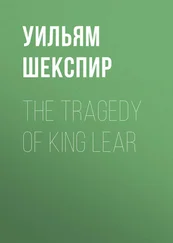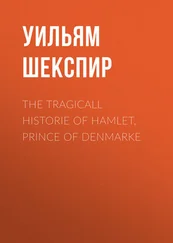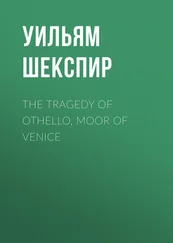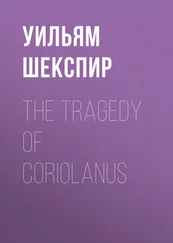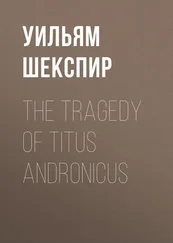Уильям Шекспир - The Tragedy of Hamlet, Prince of Denmark
Здесь есть возможность читать онлайн «Уильям Шекспир - The Tragedy of Hamlet, Prince of Denmark» — ознакомительный отрывок электронной книги совершенно бесплатно, а после прочтения отрывка купить полную версию. В некоторых случаях можно слушать аудио, скачать через торрент в формате fb2 и присутствует краткое содержание. Жанр: Европейская старинная литература, Драматургия, foreign_dramaturgy, на английском языке. Описание произведения, (предисловие) а так же отзывы посетителей доступны на портале библиотеки ЛибКат.
- Название:The Tragedy of Hamlet, Prince of Denmark
- Автор:
- Жанр:
- Год:неизвестен
- ISBN:нет данных
- Рейтинг книги:3 / 5. Голосов: 1
-
Избранное:Добавить в избранное
- Отзывы:
-
Ваша оценка:
- 60
- 1
- 2
- 3
- 4
- 5
The Tragedy of Hamlet, Prince of Denmark: краткое содержание, описание и аннотация
Предлагаем к чтению аннотацию, описание, краткое содержание или предисловие (зависит от того, что написал сам автор книги «The Tragedy of Hamlet, Prince of Denmark»). Если вы не нашли необходимую информацию о книге — напишите в комментариях, мы постараемся отыскать её.
The Tragedy of Hamlet, Prince of Denmark — читать онлайн ознакомительный отрывок
Ниже представлен текст книги, разбитый по страницам. Система сохранения места последней прочитанной страницы, позволяет с удобством читать онлайн бесплатно книгу «The Tragedy of Hamlet, Prince of Denmark», без необходимости каждый раз заново искать на чём Вы остановились. Поставьте закладку, и сможете в любой момент перейти на страницу, на которой закончили чтение.
Интервал:
Закладка:
Scene IV. Elsinore. The platform before the Castle
Enter Hamlet, Horatio, and Marcellus.
Ham. The air bites shrewdly; it is very cold.
Hor. It is a nipping and an eager air.
Ham. What hour now?
Hor. I think it lacks of twelve.
Mar. No, it is struck.
Hor. Indeed? I heard it not. It then draws near the season
Wherein the spirit held his wont to walk.
A flourish of trumpets, and two pieces go off.
What does this mean, my lord?
Ham. The King doth wake to-night and takes his rouse,
Keeps wassail, and the swagg'ring upspring reels,
And, as he drains his draughts of Rhenish down,
The kettledrum and trumpet thus bray out
The triumph of his pledge.
Hor. Is it a custom?
Ham. Ay, marry, is't;
But to my mind, though I am native here
And to the manner born, it is a custom
More honour'd in the breach than the observance.
This heavy-headed revel east and west
Makes us traduc'd and tax'd of other nations;
They clip us drunkards and with swinish phrase
Soil our addition; and indeed it takes
From our achievements, though perform'd at height,
The pith and marrow of our attribute.
So oft it chances in particular men
That, for some vicious mole of nature in them,
As in their birth, – wherein they are not guilty,
Since nature cannot choose his origin, -
By the o'ergrowth of some complexion,
Oft breaking down the pales and forts of reason,
Or by some habit that too much o'erleavens
The form of plausive manners, that these men
Carrying, I say, the stamp of one defect,
Being nature's livery, or fortune's star,
Their virtues else- be they as pure as grace,
As infinite as man may undergo-
Shall in the general censure take corruption
From that particular fault. The dram of e'il
Doth all the noble substance often dout To his own scandal.
Enter Ghost.
Hor. Look, my lord, it comes!
Ham. Angels and ministers of grace defend us!
Be thou a spirit of health or goblin damn'd,
Bring with thee airs from heaven or blasts from hell,
Be thy intents wicked or charitable,
Thou com'st in such a questionable shape
That I will speak to thee. I'll call thee Hamlet,
King, father, royal Dane. O, answer me?
Let me not burst in ignorance, but tell
Why thy canoniz'd bones, hearsed in death,
Have burst their cerements; why the sepulchre
Wherein we saw thee quietly inurn'd,
Hath op'd his ponderous and marble jaws
To cast thee up again. What may this mean
That thou, dead corse, again in complete steel,
Revisits thus the glimpses of the moon,
Making night hideous, and we fools of nature
So horridly to shake our disposition
With thoughts beyond the reaches of our souls?
Say, why is this? wherefore? What should we do?
Ghost beckons Hamlet.
Hor. It beckons you to go away with it,
As if it some impartment did desire
To you alone.
Mar. Look with what courteous action
It waves you to a more removed ground.
But do not go with it!
Hor. No, by no means!
Ham. It will not speak. Then will I follow it.
Hor. Do not, my lord!
Ham. Why, what should be the fear?
I do not set my life at a pin's fee;
And for my soul, what can it do to that,
Being a thing immortal as itself?
It waves me forth again. I'll follow it.
Hor. What if it tempt you toward the flood, my lord,
Or to the dreadful summit of the cliff
That beetles o'er his base into the sea,
And there assume some other, horrible form
Which might deprive your sovereignty of reason
And draw you into madness? Think of it.
The very place puts toys of desperation,
Without more motive, into every brain
That looks so many fadoms to the sea
And hears it roar beneath.
Ham. It waves me still.
Go on. I'll follow thee.
Mar. You shall not go, my lord.
Ham. Hold off your hands!
Hor. Be rul'd. You shall not go.
Ham. My fate cries out
And makes each petty artire in this body
As hardy as the Nemean lion's nerve.
[Ghost beckons.]
Still am I call'd. Unhand me, gentlemen.
By heaven, I'll make a ghost of him that lets me! -
I say, away! – Go on. I'll follow thee.
Hor. He waxes desperate with imagination.
Mar. Let's follow. 'Tis not fit thus to obey him.
Hor. Have after. To what issue wail this come?
Mar. Something is rotten in the state of Denmark.
Hor. Heaven will direct it.
Mar. Nay, let's follow him.
Scene V. Elsinore. The Castle. Another part of the fortifications
Enter Ghost and Hamlet.
Ham. Whither wilt thou lead me? Speak! I'll go no further.
Ghost. Mark me.
Ham. I will.
Ghost. My hour is almost come,
When I to sulph'rous and tormenting flames
Must render up myself.
Ham. Alas, poor ghost!
Ghost. Pity me not, but lend thy serious hearing
To what I shall unfold.
Ham. Speak. I am bound to hear.
Ghost. So art thou to revenge, when thou shalt hear.
Ham. What?
Ghost. I am thy father's spirit,
Doom'd for a certain term to walk the night,
And for the day confin'd to fast in fires,
Till the foul crimes done in my days of nature
Are burnt and purg'd away. But that I am forbid
To tell the secrets of my prison house,
I could a tale unfold whose lightest word
Would harrow up thy soul, freeze thy young blood,
Make thy two eyes, like stars, start from their spheres,
Thy knotted and combined locks to part,
And each particular hair to stand an end
Like quills upon the fretful porpentine.
But this eternal blazon must not be
To ears of flesh and blood. List, list, O, list!
If thou didst ever thy dear father love-
Ham. O God!
Ghost. Revenge his foul and most unnatural murther.
Ham. Murther?
Ghost. Murther most foul, as in the best it is;
But this most foul, strange, and unnatural.
Ham. Haste me to know't, that I, with wings as swift
As meditation or the thoughts of love,
May sweep to my revenge.
Ghost. I find thee apt;
And duller shouldst thou be than the fat weed
That rots itself in ease on Lethe wharf,
Wouldst thou not stir in this. Now, Hamlet, hear.
'Tis given out that, sleeping in my orchard,
A serpent stung me. So the whole ear of Denmark
Is by a forged process of my death
Rankly abus'd. But know, thou noble youth,
The serpent that did sting thy father's life
Now wears his crown.
Ham. O my prophetic soul!
My uncle?
Ghost. Ay, that incestuous, that adulterate beast,
With witchcraft of his wit, with traitorous gifts-
O wicked wit and gifts, that have the power
So to seduce! – won to his shameful lust
The will of my most seeming-virtuous queen.
O Hamlet, what a falling-off was there,
From me, whose love was of that dignity
That it went hand in hand even with the vow
I made to her in marriage, and to decline
Upon a wretch whose natural gifts were poor
To those of mine!
But virtue, as it never will be mov'd,
Though lewdness court it in a shape of heaven,
So lust, though to a radiant angel link'd,
Will sate itself in a celestial bed
And prey on garbage.
But soft! methinks I scent the morning air.
Brief let me be. Sleeping within my orchard,
My custom always of the afternoon,
Upon my secure hour thy uncle stole,
With juice of cursed hebona in a vial,
And in the porches of my ears did pour
The leperous distilment; whose effect
Holds such an enmity with blood of man
That swift as quicksilverr it courses through
The natural gates and alleys of the body,
And with a sudden vigour it doth posset
And curd, like eager droppings into milk,
The thin and wholesome blood. So did it mine;
And a most instant tetter bark'd about,
Most lazar-like, with vile and loathsome crust
All my smooth body.
Thus was I, sleeping, by a brother's hand
Of life, of crown, of queen, at once dispatch'd;
Cut off even in the blossoms of my sin,
Unhous'led, disappointed, unanel'd,
No reckoning made, but sent to my account
With all my imperfections on my head.
Ham. O, horrible! O, horrible! most horrible!
Ghost. If thou hast nature in thee, bear it not.
Let not the royal bed of Denmark be
A couch for luxury and damned incest.
But, howsoever thou pursuest this act,
Taint not thy mind, nor let thy soul contrive
Against thy mother aught. Leave her to heaven,
And to those thorns that in her bosom lodge
To prick and sting her. Fare thee well at once.
The glowworm shows the matin to be near
And gins to pale his uneffectual fire.
Adieu, adieu, adieu! Remember me. Exit.
Интервал:
Закладка:
Похожие книги на «The Tragedy of Hamlet, Prince of Denmark»
Представляем Вашему вниманию похожие книги на «The Tragedy of Hamlet, Prince of Denmark» списком для выбора. Мы отобрали схожую по названию и смыслу литературу в надежде предоставить читателям больше вариантов отыскать новые, интересные, ещё непрочитанные произведения.
Обсуждение, отзывы о книге «The Tragedy of Hamlet, Prince of Denmark» и просто собственные мнения читателей. Оставьте ваши комментарии, напишите, что Вы думаете о произведении, его смысле или главных героях. Укажите что конкретно понравилось, а что нет, и почему Вы так считаете.
